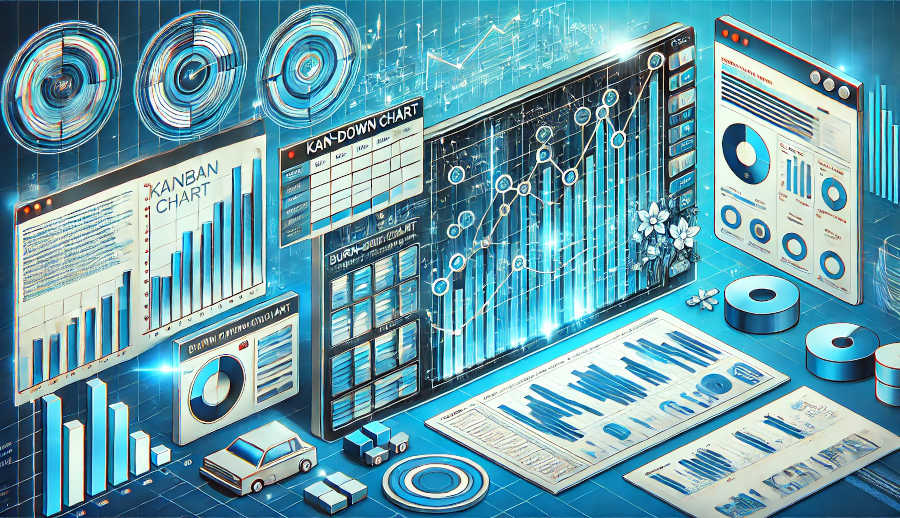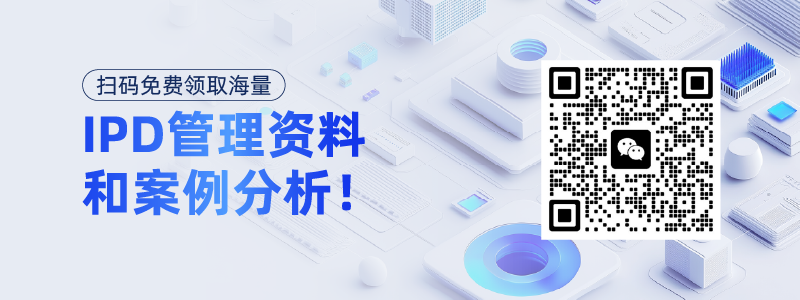Prioritize and Plan
One of the foundational steps in time management within IPD is to prioritize and plan tasks effectively. This involves creating a detailed project plan that outlines all tasks, milestones, and dependencies. By prioritizing tasks based on their importance and urgency, project managers can ensure that critical activities are completed on time. Additionally, planning helps in allocating resources efficiently, which is essential in an IPD environment where resources are often shared across multiple projects. Effective planning also involves setting realistic deadlines and regularly reviewing the project plan to make adjustments as needed. This proactive approach helps in anticipating potential bottlenecks and addressing them before they escalate into significant issues.
Moreover, prioritizing tasks allows project managers to focus on high-impact activities that contribute the most to the project's success. This is particularly important in IPD, where the integration of various disciplines can lead to a multitude of tasks and responsibilities. By focusing on the most critical tasks first, project managers can ensure that the project stays on track and that key deliverables are met on time. Effective planning also fosters a culture of accountability, where team members understand their roles and responsibilities, leading to better time management and project execution.
Lastly, planning and prioritization are not one-time activities but ongoing processes. Regularly reviewing and updating the project plan ensures that it remains relevant and aligned with the project's evolving needs. This iterative approach allows project managers to adapt to changes and make necessary adjustments, thereby maintaining the project's momentum and ensuring timely completion.
Use Technology
Incorporating technology into the IPD process is another critical aspect of effective time management. Project management tools and software can significantly streamline workflows and enhance collaboration among team members. These tools provide real-time visibility into project progress, allowing project managers to track task completion, identify delays, and take corrective actions promptly. For instance, tools like Microsoft Project, Trello, and Asana offer features such as task tracking, Gantt charts, and resource management, which are essential in an IPD environment.
Furthermore, technology enables better communication and coordination among team members, regardless of their physical location. Collaboration platforms like Slack and Microsoft Teams facilitate seamless communication, allowing team members to share updates, discuss issues, and make decisions quickly. This reduces the time spent on coordination and ensures that everyone is on the same page, leading to more efficient time management. Additionally, these platforms can be integrated with project management tools, providing a unified view of project activities and enhancing overall project visibility.
Another advantage of using technology is the ability to automate repetitive tasks, freeing up time for more strategic activities. For example, automation tools can handle routine tasks such as data entry, scheduling, and notification, allowing project managers and team members to focus on more critical tasks. This not only improves efficiency but also reduces the risk of human error, which can lead to delays and rework. By leveraging technology, IPD teams can achieve better time management, leading to more successful project outcomes.
Foster Collaboration
Collaboration is the cornerstone of the IPD process, and fostering a collaborative environment is essential for effective time management. In an IPD project, multiple teams with diverse expertise work together to achieve a common goal. Therefore, it is crucial to establish clear communication channels and promote a culture of collaboration. This involves regular team meetings, where members can discuss progress, share insights, and address any challenges. These meetings should be well-structured and focused, ensuring that valuable time is not wasted on non-essential discussions.
Another way to foster collaboration is by creating cross-functional teams that bring together members from different disciplines. This approach ensures that diverse perspectives are considered, leading to more innovative solutions and better decision-making. Cross-functional teams also help in breaking down silos, where team members from different departments can share knowledge and work towards a common goal. This collaborative approach not only enhances time management but also improves project outcomes by leveraging the collective expertise of the team.
Moreover, fostering collaboration involves recognizing and celebrating team achievements. Acknowledging the contributions of team members and highlighting their successes can boost morale and foster a positive work environment. This, in turn, encourages team members to be more engaged and committed to the project, leading to better time management and project execution. By prioritizing collaboration, IPD teams can overcome challenges more effectively and achieve their goals within the designated timeframe.
Delegate Responsibly
Delegation is a powerful tool for effective time management in the IPD process. However, it is essential to delegate tasks responsibly, ensuring that they are assigned to the right team members based on their skills and expertise. This involves understanding the strengths and weaknesses of each team member and assigning tasks that align with their capabilities. Effective delegation not only improves efficiency but also empowers team members to take ownership of their work, leading to better outcomes.
Moreover, delegation allows project managers to focus on high-level strategic activities, such as planning and decision-making, rather than getting bogged down by routine tasks. This is particularly important in an IPD environment, where project managers have to manage multiple tasks and responsibilities. By delegating tasks, project managers can ensure that critical activities are completed on time and that the project stays on track. Additionally, delegation fosters a culture of trust and accountability, where team members feel valued and motivated to contribute to the project's success.
Lastly, effective delegation involves providing clear instructions and expectations for each task. Team members should be aware of the project's goals, their role in achieving them, and the timeline for task completion. This clarity ensures that everyone is working towards the same objectives and that tasks are completed within the designated timeframe. By delegating responsibly, project managers can achieve better time management and ensure the successful completion of IPD projects.
Set Clear Goals
Setting clear and achievable goals is another critical aspect of effective time management in the IPD process. Goals provide direction and focus, helping team members understand what is expected of them and how their efforts contribute to the project's success. This involves defining specific, measurable, achievable, relevant, and time-bound (SMART) goals that align with the project's objectives. Clear goals also help in prioritizing tasks and allocating resources efficiently, ensuring that the project stays on track.

Moreover, setting clear goals fosters a sense of purpose and motivation among team members. When team members understand the significance of their contributions and how they fit into the bigger picture, they are more likely to be engaged and committed to the project. This, in turn, leads to better time management and improved project outcomes. Additionally, clear goals allow project managers to track progress and make necessary adjustments, ensuring that the project stays aligned with its objectives.
Lastly, setting clear goals involves regular review and feedback. Project managers should regularly assess the progress towards the goals and provide feedback to the team. This iterative approach ensures that any deviations from the plan are identified and addressed promptly, maintaining the project's momentum and ensuring timely completion. By setting clear goals, IPD teams can achieve better time management and deliver successful projects within the designated timeframe.
Manage Risks
Risk management is a critical component of effective time management in the IPD process. Identifying and mitigating potential risks early on can prevent delays and ensure that the project stays on track. This involves conducting a thorough risk assessment to identify potential risks, their impact on the project, and the likelihood of their occurrence. Once identified, risks should be prioritized based on their severity and addressed through appropriate mitigation strategies.
Moreover, risk management involves creating contingency plans for high-priority risks. This ensures that the project can continue even if a risk materializes, minimizing its impact on the project's timeline. Contingency plans should be well-documented and communicated to all team members, ensuring that everyone is prepared to take corrective actions if necessary. Additionally, risk management should be an ongoing process, with regular reviews and updates to reflect changes in the project environment.
Lastly, effective risk management involves fostering a culture of transparency and open communication. Team members should feel comfortable reporting potential risks and issues, allowing project managers to address them promptly. This proactive approach helps in preventing minor issues from escalating into significant problems, leading to better time management and project outcomes. By managing risks effectively, IPD teams can ensure that the project stays on track and within budget.
Monitor Progress
Monitoring progress is essential for effective time management in the IPD process. Regularly tracking project progress allows project managers to identify any deviations from the plan and take corrective actions promptly. This involves using project management tools to monitor task completion, resource allocation, and milestone achievements. Tools like Gantt charts and dashboards provide real-time visibility into project progress, enabling project managers to make data-driven decisions.
Moreover, monitoring progress involves conducting regular status meetings with the project team. These meetings provide an opportunity to review progress, discuss issues, and make decisions collaboratively. Status meetings should be well-structured and focused, ensuring that valuable time is not wasted on non-essential discussions. Additionally, progress monitoring should be aligned with the project's goals and objectives, ensuring that any deviations are addressed promptly.
Lastly, effective progress monitoring involves using key performance indicators (KPIs) to measure project success. KPIs provide a quantitative measure of progress, allowing project managers to assess whether the project is on track to meet its goals. By regularly monitoring progress and using KPIs, project managers can ensure that the project stays on track and within budget. This proactive approach helps in preventing delays and ensuring timely project completion.
Continuous Improvement
Continuous improvement is a key aspect of effective time management in the IPD process. This involves regularly reviewing project performance and identifying areas for improvement. Post-project reviews provide valuable insights into what worked well and what could be improved, enabling project managers to apply these lessons to future projects. This iterative approach helps in enhancing project management practices and improving time management.
Moreover, continuous improvement involves fostering a culture of learning and innovation within the project team. Encouraging team members to share their experiences and insights can lead to more effective problem-solving and better decision-making. Additionally, continuous improvement should be aligned with the project's goals and objectives, ensuring that any improvements are focused and relevant.
Lastly, continuous improvement involves leveraging technology and best practices to enhance project management. This includes adopting new tools and methodologies that can improve efficiency and effectiveness. By embracing continuous improvement, IPD teams can achieve better time management and deliver successful projects within the designated timeframe.
Conclusion
In conclusion, effective time management is essential for the success of IPD projects. By prioritizing and planning tasks, using technology, fostering collaboration, delegating responsibly, setting clear goals, managing risks, monitoring progress, and embracing continuous improvement, project managers can ensure that projects stay on track and within budget. These practical tips not only enhance time management but also improve project outcomes by leveraging the collective expertise of the team. As the complexity of IPD projects continues to grow, mastering time management will be crucial for delivering successful projects and achieving organizational goals.
FAQ
1.How can technology improve time management in IPD projects?
Technology can significantly streamline workflows and enhance collaboration among team members. Project management tools provide real-time visibility into project progress, allowing project managers to track task completion, identify delays, and take corrective actions promptly. Additionally, technology enables better communication and coordination, reduces the time spent on coordination, and automates repetitive tasks, freeing up time for more
ARTICLE TITLE :Time management in IPD process: 9 practical tips ,AUTHOR :ITpmlib

















